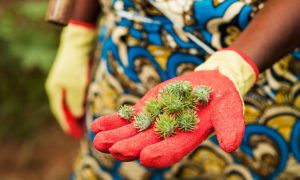Type of activity
Bioenergy
Oil & Gas

Or , our new artificial intelligence tool.

We operate in Kenya in the exploration and agro-industrial sectors. The country is leading Africa in the production of vegetable oil for Eni’s biorefineries in Gela and Venice. This is being done through a circular economy model that benefits local communities and helps to ensure a sustainable supply of raw materials to the global energy market. In 2023, Kenya’s national airline became the first in the world to use sustainable aviation fuel (SAF) produced by Enilive on its Nairobi-Amsterdam route.
Africa is playing an increasingly important role in the global economy and geopolitics. To support its constant demographic growth and economic development, the continent needs to invest in energy infrastructure. This is especially true in the sub-Saharan region, where millions of people still lack access to electricity. The energy transition provides an opportunity to meet these challenges by modernizing the energy mix and making it more efficient.
Activity start date: 1960 - present
Agip Kenya was the first Eni company to operate in the field of import and distribution of oil products and by-products, nitrogen fertilisers, and synthetic rubber from the 1960s. Today, as Eni Kenya, we are also engaged in exploration activities in the offshore in six blocks located in the deep waters of the Lamu Basin, off Mombasa.
Kenya is the first African country in which we have built an oilseed pressing plant for the extraction of vegetable oil for the production of biofuel. Located in Wote, Makueni County, Eni’s first agri-hub on the continent has a capacity of 15,000 tons per year and, since 2022, has supplied the Eni biorefinery in Gela.
This is a new model in the agribusiness sector that allows Kenya to enter the global industrial chain for the production of agri-feedstock, which are raw materials cultivated on degraded, semi-arid or abandoned land that are not in competition with the food supply chain.
The first plant will be followed by a second. The development plan for the agri-hubs generates income and market access opportunities for tens of thousands of farmers and provides for them to also function as training and technical support centres for local workers with the goal of contributing to the improvement of agricultural production and soil regeneration, also through the adoption of good practices and the promotion of food security in the territories.
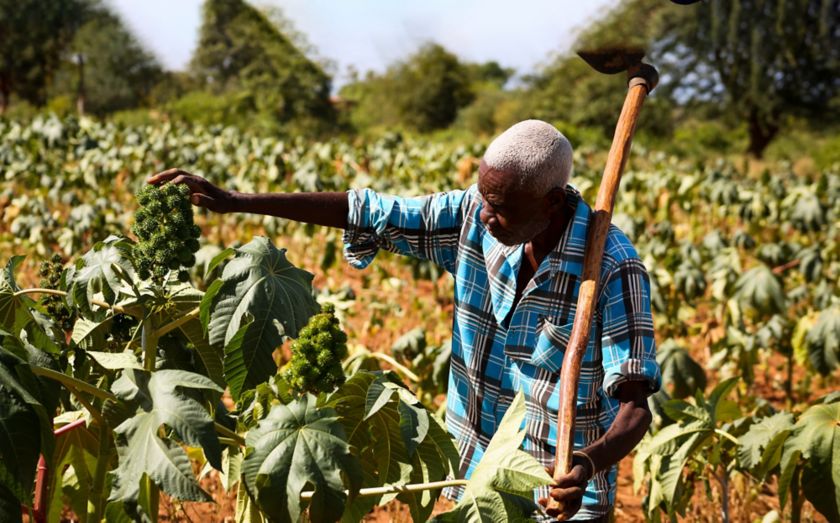
Castor bean plantation
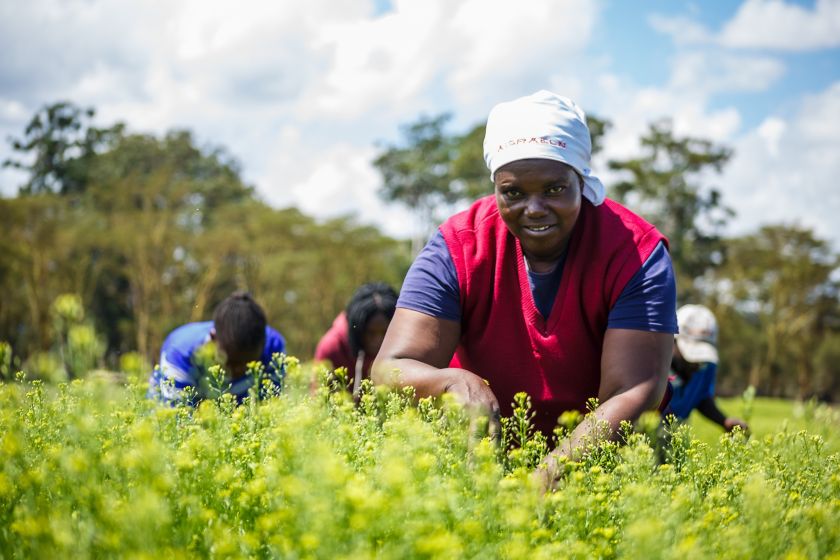
Cultivation of raw materials in the fields
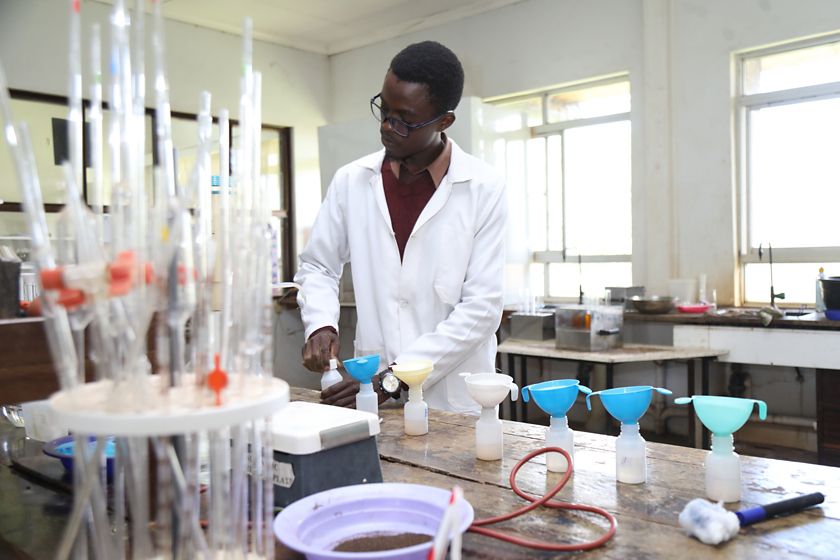
Workshop for the development of agro-industrial supply chains
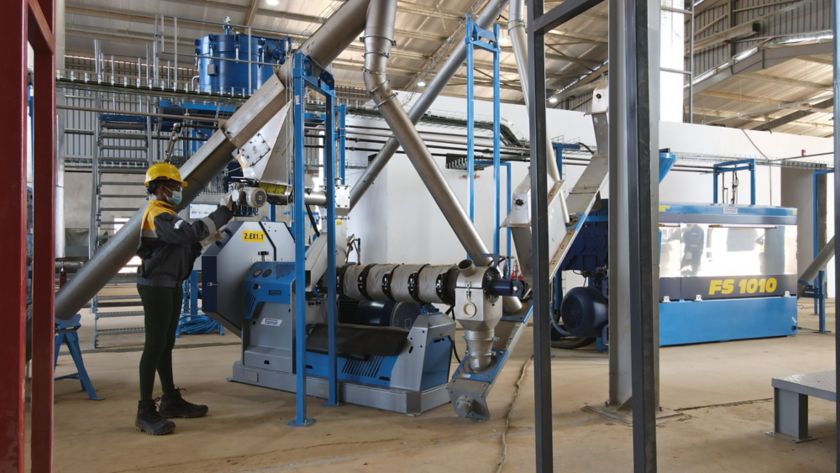
Crop processing plant
As part of the circular economy projects launched across the country, there is also the collection of used cooking oil (UCO) involving fast food chains, restaurants and hotels, and a study for the conversion of the Mombasa refinery into a biorefinery.
total financing from Eni and IFC to support agri-feedstock initiatives in Kenya
achieve a vegetable oil production capacity
agri-feedstock production through to 2026
area where agricultural feedstock is produced
The recognition marks a key milestone in agri-feedstock production in Kenya through regenerative farming practices.
Read moreFrom petroleum products to biofuels, we share the country’s path towards the energy transition.
Kenya Airways flight covering the route Nairobi-Amsterdam is powered by sustainable aviation fuel produced by Enilive.
In collaboration with AICS, the initiative aims to test climate-resistant sustainable agricultural technologies and practices inMakueni County.
The first cargo of vegetable oil for biorefining produced by Eni in Kenya leaves the port of Mombasa bound for the biorefinery in Gela, Italy.
The Makueni agri-hub for the collection and pressing of oilseed is operative with the launch of vegetable oil production for biorefineries.
Around 25,000 local farmer families are involved in the production of agri-feedstock for the biorefining supply chain.
The collaboration agreement covers key sectors for the development of the country, such as agriculture and the environment, healthcare and education, innovation and access to energy.
The agreement provides for the promotion of the decarbonisation process through the integration of the circular economy along the entire supply chain.
Activities in the exploration and production of natural resources resume.
The company starts production and distribution activities of petroleum products and by-products, nitrogen fertilisers and synthetic rubber.
A photobook documents the involvement of local farmers in the production of bio-oils, which are used as raw materials for biofuels.
Learn moreVisit the agri-feedstock projects that contribute to the increasingly sustainable supply of our biorefineries.
The interactive specialKenya Branch
Eaton Place
5th Floor
Gigiri, United Nations Crescent
Off Limuru Road
P.O. Box 2913-00621
Nairobi, Kenya

If you want to change topic, clear the chat and make a new query to receive more relevant results.
This will delete the question history.
If you want to change topic, clear the chat and make a new query to receive more relevant results. This will delete the question history.
Here you can find the full list of your queries.
The answers are generated by artificial intelligence, therefore they may contain inaccuracies. Please read the terms and conditions of use.

EnergIA is an innovative tool based on artificial intelligence capabilities, which can help you navigate the contents of eni.com, quickly finding answers to your questions. EnergIA can also perform a search on a specific topic, providing the most up-to-date data available, or it can invite you to delve deeper into a topic of your interest by suggesting links and specific readings. Start now!
EnergIA is an innovative tool based on artificial intelligence capabilities, which can help you navigate the contents of eni.com, quickly finding answers to your questions. Start now!
EnergIA (ener'dʒia) is a system based on Generative Artificial Intelligence.
Thanks to this technology, we can respond to your requests by querying the most relevant content and documents available on eni.com. (Note: financial documents from the last 12 months and press releases from the last 2 years are considered.)
Through EnergIA, you can delve into topics of interest and have a real-time window into the world of Eni.
If you wish to search for a specific document, press release or news, use the traditional search engine via the magnifying glass icon.
Like all systems that leverage Generative Artificial Intelligence, EnergIA may generate inaccurate or outdated responses. Always consult the sources that EnergIA proposes as the origin of the generated information.
If the system fails to find an exact match for the requested content, it still tends to provide a response.
If you find any inaccuracies in the provided response, please send us your feedback at the bottom of the page: it will be very helpful for us to improve.
Remember that the content generated by the system does not represent Eni’s official position. We therefore invite stakeholders to refer to their designated contacts for official statements: Press Office for journalists, Investor Relations for analysts and investors, Company Secretariat for shareholders etc..
EnergIA can understand questions posed in almost all languages, but we prefer to provide you with a response in English or Italian, the two languages available on eni.com. If you ask a question in Italian, the content on the site in Italian will be consulted. If you ask it in English or any other language, the content in English will be consulted. (Note: the language Eni uses for financial documents/content is predominantly English.)
If questions are formulated that violate the set security criteria, the system will not proceed with processing the response. Please remember not to send personal data.
By using this service, the users acknowledge that they have read and accepted the terms and conditions of use.
Search
EnergIA (ener'dʒia) is a system based on Generative Artificial Intelligence.
Thanks to this technology, we can respond to your requests by querying the most relevant content and documents available on eni.com. (Note: financial documents from the last 12 months and press releases from the last 2 years are considered.)
Through EnergIA, you can delve into topics of interest and have a real-time window into the world of Eni.
If you wish to search for a specific document, press release or news, use the traditional search engine via the magnifying glass icon.
Like all systems that leverage Generative Artificial Intelligence, EnergIA may generate inaccurate or outdated responses. Always consult the sources that EnergIA proposes as the origin of the generated information.
If the system fails to find an exact match for the requested content, it still tends to provide a response.
If you find any inaccuracies in the provided response, please send us your feedback at the bottom of the page: it will be very helpful for us to improve.
Remember that the content generated by the system does not represent Eni’s official position. We therefore invite stakeholders to refer to their designated contacts for official statements: Press Office for journalists, Investor Relations for analysts and investors, Company Secretariat for shareholders etc..
EnergIA can understand questions posed in almost all languages, but we prefer to provide you with a response in English or Italian, the two languages available on eni.com. If you ask a question in Italian, the content on the site in Italian will be consulted. If you ask it in English or any other language, the content in English will be consulted. (Note: the language Eni uses for financial documents/content is predominantly English.)
If questions are formulated that violate the set security criteria, the system will not proceed with processing the response. Please remember not to send personal data.
By using this service, the users acknowledge that they have read and accepted the terms and conditions of use.
A new window into Eni’s world, at your disposal. EnergIA is an innovative tool based on artificial intelligence capabilities, which can help you navigate the contents of eni.com, quickly finding answers to your questions.
